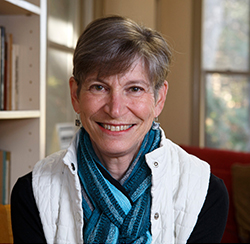As the year wraps up, the Chronicle of Philanthropy is out with a list of notable books from 2015. We interviewed a number of the authors. They wrote about altruism, technology, poverty and education.
Larissa MacFarquhar
The New Yorker staff writer talks about extreme altruists in her book Strangers Drowning: Grappling With Impossible Idealism, Drastic Choices, and the Overpowering Urge to Help.
Kentaro Toyama
The Yale and Harvard-trained computer scientist worked as a Microsoft researcher in India for several years, tasked with finding ways to improve the lives of the world’s poor through tech. Along the way, Toyama discovered that computers and smart phones would never solve the world’s problems. He offers surprisingly old school ideas for tackling poverty in Geek Heresy: Rescuing Social Change From the Cult of Technology.
Dale Russakoff
In The Prize: Who’s in Charge of America’s Schools, journalist Dale Russakoff delves into Mark Zuckerberg’s $100 million mission to turn around Newark, New Jersey’s ailing school system. Russakoff uncovers a number of problems with the initiative and speaks with us about them in this blog post.

Sign up for our free newsletters
Subscribe to NPQ's newsletters to have our top stories delivered directly to your inbox.
By signing up, you agree to our privacy policy and terms of use, and to receive messages from NPQ and our partners.
Here are a couple more of our personal favorites, not included in the Chronicle’s list:
Amy Brown
The anthropologist spent two years inside a New York City public school and delivers an insightful — sometimes disturbing — account of how the school markets its low-income students of color to donors. A Good Investment? Philanthropy and the Marketing of Race in an Urban Public School is based on Brown’s experience at the pseudonymous “College Prep Academy.”
Jeremy N. Smith
It would be an enormous challenge to figure out what people suffer and die from in every part of the world. But Christopher Murray decided to try. Smith recount the effort in a highly engaging narrative, Epic Measures: One Doctor. Seven Billion Patients.













